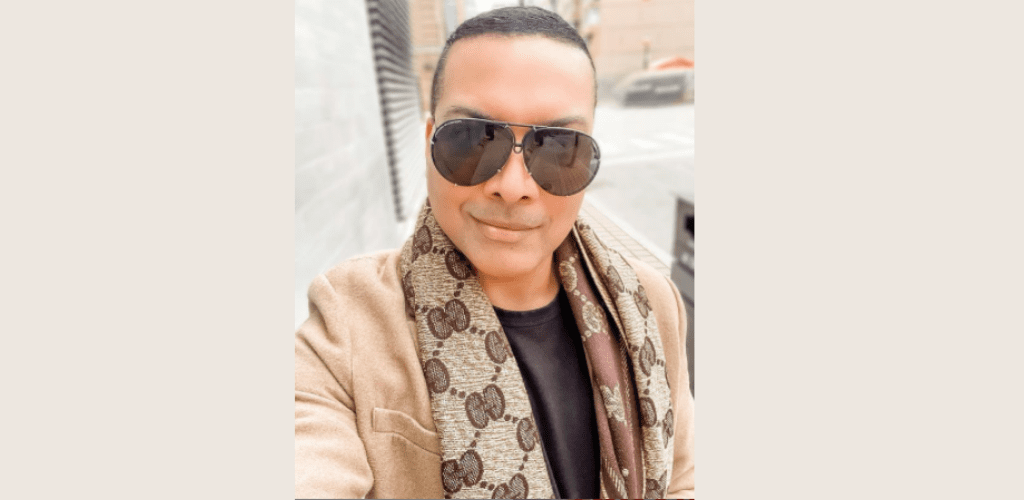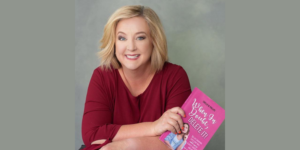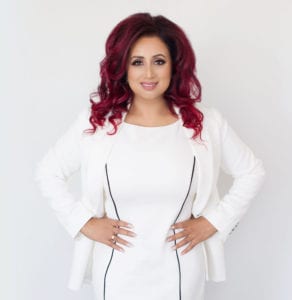Raj Girn: The great thing that I know about your business, Randy, and I also know about people who are in the service industry, is that everything is about the referrals and the relationships that you have with your existing clients, right?
Randy Phipps: Yes, 100 per cent. They’re like a walking billboard for you. If they’re successful you are successful. People see what they’re doing. The networks are watching them as well and that also prompts interest. So what are you doing? How did you get on CityLine? How did you get that feature in Forbes? What’s happening? Let me connect you to my publicist.
Here is Part Two of our conversation:
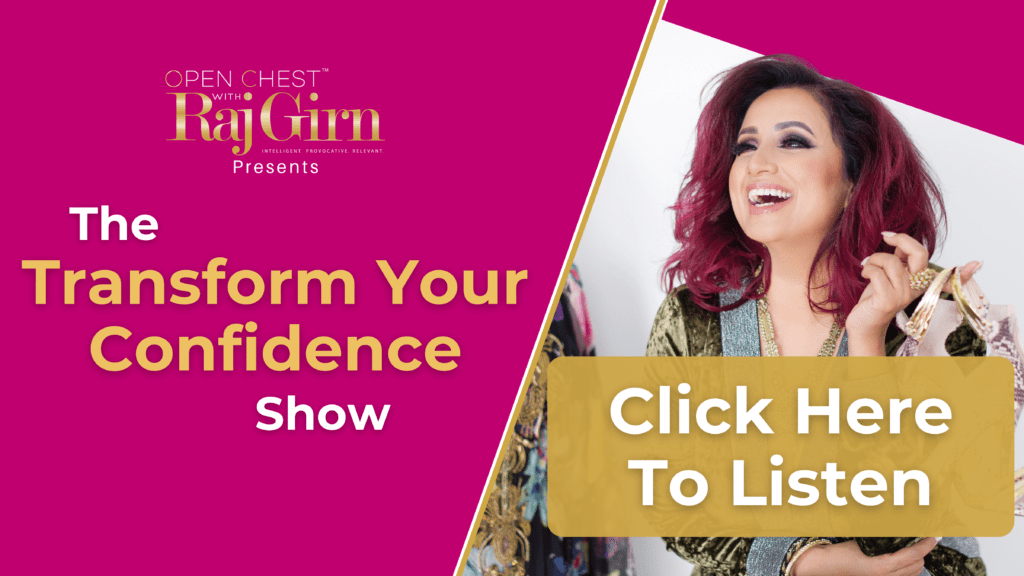
Absolutely. And I want to also ask you a question regarding how do you flip as a publicist from one type of PR versus the other, since you are in a wheelhouse of a boutique enterprise? So you’re literally, your fingers and your expertise and your time is going into all aspects of PR. How do you flip between them, considering that?
Yeah, that’s a really interesting question because I actually thought about that. I think about it often because I have different . . . I don’t want to say tiers of clients because I don’t see them like that. Everyone gets the same level of attention. But for instance, if you’re dealing with a well-known celebrity and then you’re dealing with a new brand, it’s completely different. So they have to be treated in a different way.
For instance, like a newer emerging brand, you want them to be out there, you want them to do as much media as they can, you want them to just do everything to the highest degree, but then when you’re dealing with a celebrity, you’re dealing with a lot of requests that are constantly coming in for them. And you’re filtering through them to pick the best ones because they’ve reached that pinnacle of success and that level of their career where you can be highly selective of what happens and where they go and what they do. And you don’t want them to get too oversaturated. You want to keep a certain level of exclusivity with them versus an emerging brand where you want them out there front and center for anything and everything mostly.
Absolutely. So this kind of brings me to this whole idea around something that you mentioned off the top of our conversation, one of the forms of PR being crisis management. Can you talk a little bit about that? Because that sounds kind of a little hairy for a lot of people who are themselves innately introverts.
“We live in a world where people buy based on emotionality. So seeing who’s behind the product is extremely important today.” ~Raj Girn
They like to stay behind the scenes. Coming out into the forefront isn’t really their wheelhouse. But we live in a world where people buy based on emotionality. So seeing who’s behind the product is extremely important today. What would you say if you got a client like that that came to you and said, “look, Randy, I like being behind the scenes, is putting myself out there is a big enough leap anyway. But what if I get this kind of negativity that I have to deal with?” How do you deal with that kind of personality? Because I’m sure that you’ve had some very interesting opportunities to work with some incredible personalities that are naturally kind of public facing, right?
And you kind of answered your own question. If you’re a super private person, PR is not for you. Get a media spokesperson, find someone else in the organization. If you are nervous and you want to throw up every time you go on television, it’s not for you. I guess everyone has nerves, that’s natural. We work with you to media train you to make sure that you’re prepared to be your best self when the camera turns on or through writing methods.
But if you are an extremely private person, that is one of the times I will say PR is not for you. It could be for everybody, but not if you’re a highly private person because your life becomes public and everything that you do is up for public consumption. You could go on television and do a great job, but you will get that person, the keyboard gangster that’s going to tell you that you sucked or what you said was inaccurate, or shame you for something because it goes against what they believe or what their opinion is. So you do have to develop a certain layer of thick skin for the industry because the hate will come at some point, especially the bigger you get.
“You do have to develop a certain layer of thick skin for the industry because the hate will come at some point, especially the bigger you get.” ~Randy Phipps
Absolutely. So, for example, the hate comes or all of a sudden there’s just a lot of negative press happening. How do you mitigate something like that? Because I know that that is probably the hardest type of PR to navigate a strategy through. Can you maybe give us one or two insights on that?
It just depends on the type of crisis situation that it is. If it’s like a mistake, you have to apologize. You have to take accountability. If it was something that was done, like a misstep, you have to craft a message and stick to the message and then also just earn the trust back. But accountability is first and foremost, people connect with that. Everybody forgives you if you make a mistake. There are certain exceptions, obviously, like if it’s criminal activity, but there are a lot of different ways you can, I don’t want to say spin it, because I actually do have a client on my roster who is a formerly incarcerated woman that I’ve learned a lot from in my career. When you dive deeper into the story, she was at the place where she was at because she was manipulated by a man.
So she really isn’t a criminal. She took the fall for something and she went to jail for it. So when she reached out to me for representation, we kind of discussed it. And my eyes opened so big because I didn’t know that most of the women that are in prison are there because of a man. And I’m like, there’s a bigger story to all of this than just the popcorn that you discovered to make while you were in jail and now you’re selling it. This is not about your popcorn. This is about a movement. It’s about your story. It’s about what you’re doing after you left prison. It’s about the good that you’re doing, what you’re putting into the world. So we don’t often revisit the story and how she got there. She doesn’t even want to blame the former partner that got her in the situation. That’s what she’s doing with it now and what she learned from being in the system and how we can move forward. So that’s a really good way to take a situation like that and then have a whole new message.
So how do you do something like that, Randy? I mean this is a case study. This is something that you’ve actually done in real life. That’s quite an extreme case. If you look at it from someone that is looking at this story from the outside that doesn’t actually know the details and the context around it. So say you have to create an entire strategy around how you wanted people to view the story. So what were some of the things that you did to shed the right light on this story and not make it about someone going to prison?
Exactly. Yeah. And that was something that she was really candid and open about. She took accountability for what she did. She never made an excuse because she did commit a crime, whether or not she was manipulated. She did commit a crime, but she owned up to it. And we just wanted to focus on what she’s doing. The story is just a story that’s part of it. But where she’s going and what she’s doing with it now, that’s where we want to keep the focus. What’s happening currently?
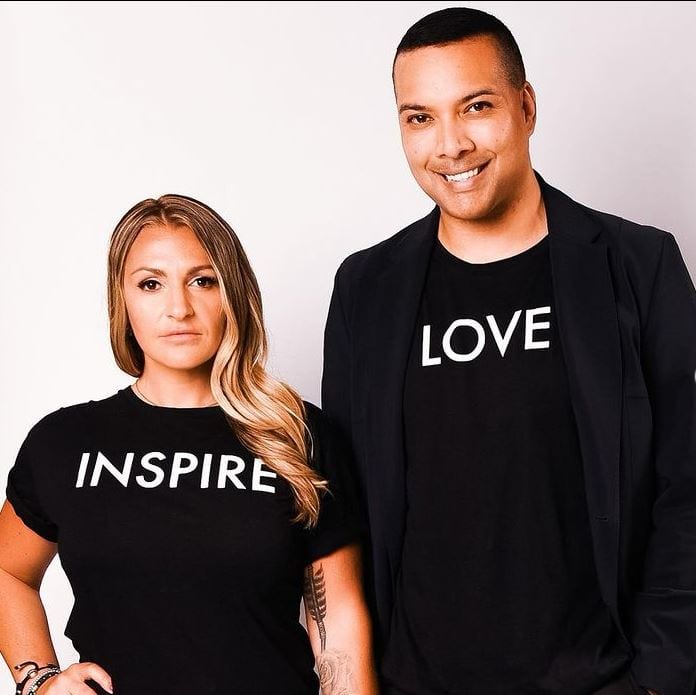
Credit: IG @randy_inc_
Absolutely. I love that, and keeping the focus where it needs to go with the intended split space that you want to go to. So you build your strategy, this what I’m hearing you say. And Randy, you build your strategy around where you want to go. So there’s a lot of kitschy words out there in the world of media right now, one of which is “cancel culture.” I have to ask you about this, because that’s another one that publicists have to figure out how to deal with, especially the larger and the more known of a personality, the more difficult that whole challenge becomes. Is there any kind of insights that you can give us around that at all?
I think people should be very cautious in general, not just celebrities or people that have a publicist, even the regular person. Whatever you put online, whatever you do, everyone has a cell phone camera, you can get filmed. So you have to be really conscious of what you’re putting out there, the whole cancel culture, I think has been taken to an extreme because literally, once again, it’s people behind their computers, in their homes that are just dragging people for everything and nitpicking every little thing.
“The whole cancel culture, I think has been taken to an extreme because literally, once again, it’s people behind their computers, in their homes that are just dragging people for everything and nitpicking every little thing.” ~Randy Phipps
And because you’re a celebrity or you’re a public figure, it’s easy for you to try to knock someone down off a peg, or if they don’t, you put them on a pedestal and then all of a sudden something happens and they fall off the pedestal. We’re really quick to attack people. So I don’t fully subscribe to cancel culture. I do think, yes, there’s certain things, obviously, like abuse, sexual assault, that kind of thing, where that’s a completely different ballgame. But I think for the most part, people recover from most of their situations depending on the severity of what it is. And people forget, people are forgiving and people do forget and time does heal unless it’s something very serious.
Right. And it kind of answers my next question for you, Randy, I wanted to ask you, is all PR good PR? I mean another thing that people think is the case. And what are your thoughts around that? I mean, is there ever a time when PR is not a good thing?
I think PR is good generally. And when it’s not good PR, that’s when you have crisis communications.
Right. So either way, PR is a good thing.
Yes. Just a have a publicist in your Rolodex, for sure.
Absolutely. So when you are faced with negative PR situations, what should a brand or a business or a personality expect from their publicist?
They should expect immediate attention, especially if it’s a crisis or something’s happening. They should expect immediate attention and they should expect a solution in the form of a strategy and a message getting crafted to put out there. And then you just need their immediate attention to make sure that that’s their primary focus, because you could lose your business overnight. So your publicity team has to be on it if anything happens, and then make sure that there’s a solid message crafted and that it’s put out there and it’s continued to be put out there. And then eventually, as long as it’s not a crazy situation, it’ll just fade away. But addressed immediately, first and foremost.
Anyone that’s just joining us, I am talking with the fabulous Randy Phipps. He has a PR company called RP Communications in the Toronto area. He deals with boutique enterprises around personalities, specifically entertainment personalities, as well as personalities in the expert arena. If anybody wants to reach out to you, what’s the best way to do it? I mean, you said it’s your Instagram. Is that the best way?
Yes, Instagram is great. It’s @randy_inc_. And I also have a website www.RPCommunications.net.
To contact Randy Phipps: IG: @randy_inc_ Website:www.RPCommunications.net
Wonderful. So I want to ask you now that you say you are onboarding somebody new that doesn’t really have that much knowledge in kind of the PR arena, especially when it comes to how to present their case. And you know this more than anyone else. You could have a one minute segment or you could be on for an hour on the podcast, right. And being able to navigate that and to stay inspiring and uplifting and all those things that you want to be, because that’s the reason why you are soliciting people to help you kind of look good in front of people. There’s four different basic ways that people communicate, right?
There’s the verbal, there’s the nonverbal, there’s the written and there’s the visual, right? I would say that there’s a fifth way and that is how you exude your energy. So I feel that that is probably more palpable than all of these full general traditional academic ways of looking at communications. So when you onboard someone and you’ve got to factor all these things in and a lot of people actually don’t know how to put these pieces together. How do I look? How do I sound? What am I saying? How do you help them make sense of that? Because I know that’s a huge part of onboarding a new client.

Credit: IG @randy_inc_
For sure. And as I mentioned earlier, people connect with people. So you have to find a way to make sure that you’re out there in a very approachable down to earth manner. Because if you’re watching someone on TV or listening to someone on a podcast, you want to trust that person that’s giving you the tips or the knowledge or the advice on their product, you want to feel comfortable with them. So it’s just a whole energy. Like you said, it’s totally energetic where you have to just exude enthusiasm. You have to be excited about your own product, service or the tips that you’re giving, because if you’re not, people aren’t going to connect with what you’re saying. If you’re just delivering a message in a really strange tone where you’re not enthusiastic, people will just disconnect within five seconds. Body language is also really important, so you can’t be slumped over. You can`t have your hands folded. You have to be warm, welcoming, inviting. And that’s just television.
Radio, podcasts are a whole different thing. You have to keep your energy super high, because if you’re too monotone, if you’re too low, people will disconnect within two and a half seconds. I don’t want to listen to someone that sounds drab and dreary. I want to be excited. I want to be energized by that person. I want to be captivated by what they’re saying. I want to see facial expressions. I want to see movements. I want to see them looking great. I want to see them really passionate about what they’re talking about.
So I just try to gas them up as best as I can and just let them know that you just need to do this. Whether it’s a three-minute television segment or if it’s a 60-minute podcast, you’ve got to keep your energy level really high. And although you’re telling the same story over and over and over and over, and it could be for years, you’re still going to have to tell the story for the next 10 years because that’s your story. You need to see it with the same level of enthusiasm as you did when you first told it.
Absolutely. I love, love, love that. So what about those clients of yours and people out there who are used the in person environment, which is a lot of what the broadcast scene is about.
But now with COVID and a lot of the lockdown situations that we’re in, everything’s gone virtual. So there’s almost like you’re used to being on a TV segment, a broadcast situation, live in studio or however they tape. And now you have to speak to those same people and do a similar kind of segment, but you’re not in the energy of the audience and the energy of the personalities and the cameras and the lights and stuff.
How do you help them navigate through that so that they are still appearing the way that people would expect them to appear if they were in a live studio audience kind of a scenario?
That’s a fabulous question and super relevant because I talk about this with them all the time. For the most part, the clients love virtual interviews because almost all of them work. So now you can just like pause from a client.
I’m just going to do a TV segment for five minutes where before we were taking two, three hours sometimes to drive to a station, to wait, to rehearse, to do a mic check and then to go on. That was like half a day. So now they’re just like popping online for the five minute segment and they love it because they can do it back-to-back. They can get more quantity banged up.
But one of the drawbacks, as you beautifully mentioned, you don’t have that connection with the host. You don’t have that connection with the producer that you see giving cues. Everything is just like you’re online, you’re on a screen. So once again, you have to be like super animated and keep your energy up. A lot of the times they’re talking to black screens for broadcast. They’re not even seeing the person or the ones for radio. It’s just a voice.
“The voice needs to match what you’re talking about with a certain level of enthusiasm. And you also have to make sure that you’re presenting yourself in the right way, because, you’re looking at a black screen or you’re looking up here.” –Randy Phipps
And you also have to make sure that you’re presenting yourself in the right way, because, like I said, you’re looking at a black screen or you’re looking up here. My biggest thing lately I’ve been noticing people looking all over the place, they don’t know where to look. I was looking at TV today. I watch TV every day, like the news channels and the guests are like they don’t know where to look. So my client put a sticky note on the laptop and just looked at and focused on that. Find one place to look or you’re going to have crazy eyes.
Yeah, absolutely. What a great tip, Randy. So I want to . . . now that we’re coming towards the end of our time together . . . Boohoo. I feel like this just so much more we need to talk about.
You made it so easy, honestly. I’m not used to being on this end of it. And I had my trepidations and I know I got to be cool and calm and I encourage people. But now I know how some of the clients must feel because I’m being interviewed by Raj. This is crazy. First of all, I didn’t have it in me to say no to you. So, I have to do this no matter what. But I’m like, this is like for hours. I just find myself off for half the day because of just preparing and trying to mentally get into that headspace. And you made this so easy. So bless you.
Oh, sweet. What a lovely, lovely testimonial. I simply adore you and I thank you for that. And I think it’s probably because for so many years I’ve been talking to personalities to try and get inside of their safe space. You know, that place that we kind of keep to ourselves. And I’ve been told that the reason why I’ve been so successful in that arena is I really don’t have any aspect of me that in any way judges the outcome of the conversation, who they are, what they do, why they do it and I am seriously very intrigued.
But you’re also intimidating because you’ve interviewed Priyanka Chopra and everybody else, and here is like little old me. So the standard, the bar is like up here. So it’s daunting. You don’t see that because you’re very encouraging to people and you speak life into them and you make them feel comfortable about why you made it easy. But coming into this with the perception of knowing who you are, what you’ve done, who you’ve spoken to, it’s like what did I get myself into?
Well, you rocked it, sweetheart. It was wonderful. And you know that you’re going to come back. I feel so blessed that every single time that I bring someone on, I always want to be able to continue the conversation further with them. So, you know that we’ve got to do this again. And we’re going to talk about some other fabulous things just to be able to help the audience out there, wherever you are in the world listening, whether you’re watching, I want you to be able to get true value from this show. And that really is my goal.
And as Randy mentioned, I’ve interviewed some incredible personalities. I’ve been very fortunate to be able to have had those opportunities. But I’m in a point right now in my life where my heart and my soul and my personal journey is calling me to really reach out and help everybody out there who are on this journey that we’re all on, that’s called life.
On this journey, oftentimes we don’t get access to a lot of elite possibilities and opportunities and we feel that maybe these people are where they are because they get access to really incredible resources. So my goal, my mission at this point in my life is to be able to give those resources and those access points to everyday people. And that’s the reason why I’m doing what I’m doing. And I’m so happy that someone like you, who is incredibly busy and works with a lot of really incredible high demanding…I’m going to say demanding because I say demanding in the most positive way, because if you don’t demand excellence from yourself and from those that are in your life, then you are not valuing who you are as a human. So I say that with pride. I say that with positivity.
And I want to close this off, Randy, by asking you, because I think it’s important for people to understand that you have to kind of know how to contextualize what you’re doing depending on the intention that you’re looking to accomplish. I want to bring this and reel this back in. How is it different when creating a strategy for a celebrity, an expert, a company and the not-for-profit? Because you’ve done all of them. And I know that there are people listening to this and watching this out there that come from one of those wheelhouses, if not more.
Let’s start with celebrity. For celebrity PR their name will get them a lot of access to the bigger shows, to the bigger outlets, the bigger publications. But oftentimes they have a product, whether it’s an album, a book, a project, anything that’s happening that they want to bring attention to, like a concert. So it’s trying to keep the messaging on point with that because the outlets will always want to talk about the past versus what they’re doing, because people connect with the notoriety that brought them to where they are. So I think when you’re doing celebrity PR, it’s just a matter of focusing on the project at hand because the celebrity will always be able to get press. But it’s a matter of promoting what’s current, the current project. You want to focus on that. As far as experts go, you want them to position you as the leading expert, the industry expert, the top expert.
So we get to the point where the media calls us to comment on things, because you’re doing so much work in the field where you’re commenting on different things in your niche or your area of expertise. So that’s really important for corporate PR. Corporate PR loves brand names and brand mentions. You could be on a show. They will hire someone to go on a show to talk about something else, but as long as you’re able to say the company name, they are so happy. Corporate loves brand mentions, brand name recognition, photos, all of that stuff. They just want to see visibility of their their logo placements. Those are the kind of the type of client that will do paid media because they have a very specific message. And they also have the budgets to purchase a segment.
In the not-for-profit world, you want people to connect with the cause. You want people to buy into it. You want to create awareness about what’s happening. So people want to support the mission and by supporting the mission, they’re pushing the movement forward. So that’s kind of like the differentiations of the four.
Anyone out there that thought you knew about PR? I feel that you just got schooled right now. I really do. And it’s a good schooling. I wanted to ask you something that I have a question about that I’m not too sure about, Randy. And that is for someone who has a lot that they have to offer, I know you get this especially with a lot of the high-yielding personalities that they have so many different levels of expertise. How do they hone in on kind of being able to dumb it down? And when I say dumb it down, I say simplify the messaging. How do you take all of that, all of this big mess and kind of bring it down here so that it is digestible when you go out there to sell it?
“First you need to find your niche and your lane and you have to stay in it. You can’t be the every person talking about everything or it will dilute your brand. The more specific you are, the higher rate for success you’ll have.” ~Randy Phipps
I have this eating disorder specialist, one of the top, if not the top in Canada. She’s a therapist, but she could talk about mental health and women’s wellness and a bunch of different things. But we wanted to position her as just an eating disorder specialist. So when you think of eating disorders, you think of Kyla Fox because she has a center, she’s a personality. She’s been talking about this for years. She’s done a lot of work to help the whole industry. So you don’t want to dilute it by having her talking about mental health one day and then talking about this and something else the other day. If you keep it very streamlined, the likelihood of her being the leader in that space is really high. So that’s something I would say: Just make sure that you pick a lane. And then the second part of your question was about?

How do you simplify?
Simplify. Keeping the message simple. Finding the top points that will connect with people and whether you’re an expert or you work in tech, you want to give people digestible information. That’s something that’s very key. You don’t want to be talking in the technical terms because people will disconnect from that. You have to think about appealing to the masses, and everyone has a different level of socioeconomic status. You want to just make sure that what you’re saying is is understood by all, not just the people in your industry, because that’s not the people that you’re trying to target all the time.
“You have to think about appealing to the masses and everyone has a different level of socioeconomic status. You want to just make sure that what you’re saying is understood by all, not just the people in your industry because that’s not the people that you’re trying to target all the time.” ~Randy Phipps
Right. So valuable. Such amazing information. And by now, if people aren’t bought into the significance and the importance of using PR strategy using the right publicist, what would you say to them to convince them?
I would say you have a strategy for everything else in your life or your business. You do it for your marketing. You do it for your business development. PR should always be considered whether it’s at the start to kick things off or later on when you’re ready or you have something that you want to promote. It should always be thought of and it should always help. You should always have a plan for it at some point.
Randy, what an absolute pleasure. For those of you who just came in at the tail end of this conversation, you know that you need to rewind this back.
It is going to be up on our YouTube channel at the Open Chest Confidence Academy. You can also go anywhere that podcast streaming platforms are, and you can go check it out. If you search ‘The Transform your Confidence Show.’ Please do that. It’s important that you do, especially if you’re looking at ways in which you can kind of put your brand out there in an authentic, credible, easy to understand and digest and also in a way where people feel resonance to you, that they feel that your energy aligns with what you’re talking about and also what they’re looking to get from you. So thank you so much, Randy. I really appreciate it. Let’s just tell people again one more time in case they didn’t catch it earlier on. How do they get a hold of you?
Sure. Through my website, www.RPCommunications.net, or through Instagram.
I adore you. Thank you so much.
I love and Adore you too. Thank you for having me. I appreciate this.
Thank you so much for staying until the end. Guys, I really hope you enjoyed the show and will action the many insights that was shared. If there’s one takeaway that you have from my show each week, I say this every single week and I’m going to say it again. In order to create a bulletproof strategy, you must marry knowledge with action and accountability. Without these working together, you are limiting your capacity to actualize your greatness. And trust me when I say that I know this because I’ve been there and I know what it takes to marry knowledge with action and accountability to finally get to where you want to go. So this is something that you are working towards or you are trying to inspire your team to work towards peace.
Tune in each and every episode. And as I mentioned before, every Sunday and every Wednesday, we drop new episodes at 9:00 a.m. and 12:00 p.m. EST. If you found this show to be helpful, I’m so super glad. I would love for you to subscribe on my YouTube channel as well as on podcast platforms everywhere. And I’d also love for you to share it with everyone you know, because I’d love as many people as possible to get value from this show. It’s the reason I do it. I do it to share valuable insights from varied experts within my wheelhouse and my resource pool so that you two can get those insights and implement them into your ecosystem. I sincerely appreciate your support and I really look forward to seeing you next time.
To Contact Randy Phipps:
Instagram @randy_inc_
www.RPCommunications.net


